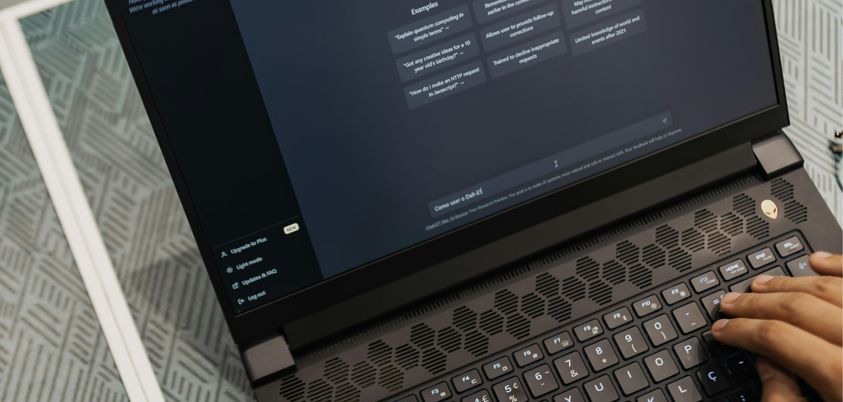
AI Takes over IT Jobs: Myth or reality?
One of the most discussed topics in the IT world is whether artificial intelligence (AI) will replace traditional IT jobs. The rise of AI technology raises questions about the future of work, and nowhere is this more evident than in the IT sector. Let’s break down the facts and consider this question from a broader perspective.
AI: The big boogeyman?
The fear that technology destroys jobs is nothing new. When automation and robots entered the industrial sector, many predicted massive unemployment. However, many of those doom scenarios didn’t materialize. Instead, we saw a shift in the nature of work. The same dynamic is now unfolding with AI in the IT sector.
AI undoubtedly has the potential to take over repetitive and predictable tasks. Think of automated software testing, IT infrastructure monitoring, or code generation through tools like GitHub Copilot. But does this mean the end of IT jobs? Not necessarily.
The evolving role of IT professionals
What AI truly does is change the playing field. Instead of traditional tasks like manual troubleshooting, IT professionals can focus on more strategic, creative, and complex challenges. Here are some examples:
-
AI management and ethics
Someone must train, monitor, and adjust the algorithms. Moreover, questions surrounding ethical AI are becoming increasingly relevant, creating new roles.
-
IT architecture and integration
AI solutions need to be integrated into existing systems, requiring in-depth knowledge of both technology and business goals.
-
Human creativity in development
While AI can generate code, it doesn’t fully grasp business context or user experience. That creative understanding remains with humans.
-
Data collection and Quality control
AI is only as good as the data it’s trained on. Data collection, cleaning, and interpretation still require human expertise.
A balance between human and machine
Rather than destroying jobs, AI can be seen as a powerful assistant. Like previous technological innovations, AI enhances the capacity of human workers. An IT professional using AI tools is more productive and can focus on innovation.
However, this shift requires a change in mindset and skills. IT professionals must continuously learn and adapt to a rapidly changing technological landscape. This might mean mastering AI tools, understanding machine learning models, or diving deeper into AI-related cybersecurity.
Myth or reality?
The idea that AI will completely take over IT jobs is a myth. The reality is that the nature of IT jobs is evolving. Roles may not disappear, but they are transforming. The demand for IT talent remains strong, but the emphasis is shifting to new skills like data analysis, AI management, and strategic IT planning.
Conclusion
The future of IT in the age of AI is one of collaboration between humans and machines. For IT professionals, the challenge lies in embracing this change and positioning themselves as indispensable players in the AI ecosystem.
Would you like to learn more about how your organization or team can leverage AI to grow? Or how to align your skills with the demands of tomorrow? Contact our team. Together, we’ll build a future where humans and technology strengthen each other.





